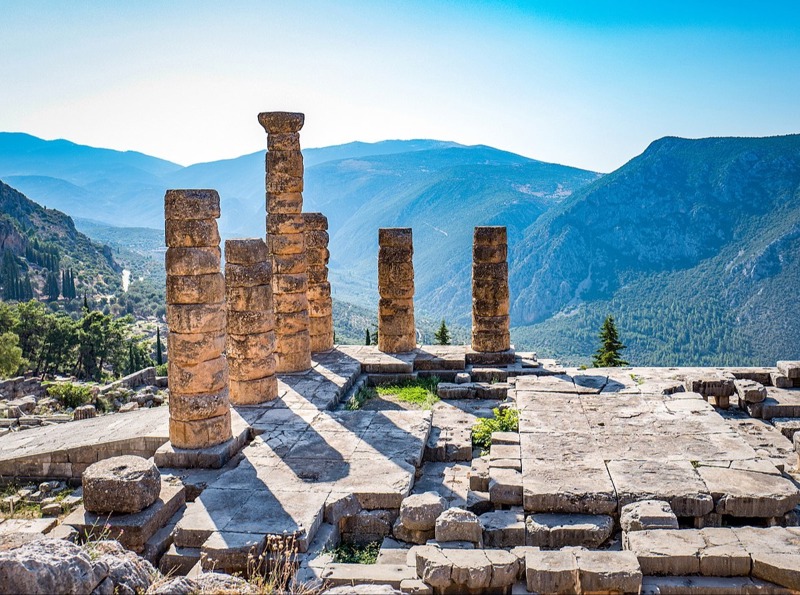Travel Log
Nestled amidst the rugged slopes of Mount Parnassus, the Sanctuary of Apollo in Delphi stands as a testament to ancient Greece's spiritual and cultural significance. Dating back to at least the 8th century BCE, Delphi served as the religious center of the Greek world, where pilgrims journeyed from far and wide to consult the famed Oracle of Delphi and seek guidance from the god Apollo.
At the heart of the sanctuary lies the Temple of Apollo, a majestic tower dedicated to the god of prophecy, music, and healing. Constructed in the Doric style, the temple's
Joe Lee
5 chapters
28 Feb 2024
Sanctuary of Apollo in Delphi
February 25, 2024
Nestled amidst the rugged slopes of Mount Parnassus, the Sanctuary of Apollo in Delphi stands as a testament to ancient Greece's spiritual and cultural significance. Dating back to at least the 8th century BCE, Delphi served as the religious center of the Greek world, where pilgrims journeyed from far and wide to consult the famed Oracle of Delphi and seek guidance from the god Apollo.
At the heart of the sanctuary lies the Temple of Apollo, a majestic tower dedicated to the god of prophecy, music, and healing. Constructed in the Doric style, the temple's

grandeur mirrored the power and prestige of the Delphic Oracle, whose pronouncements shaped the course of ancient Greek history. Pilgrims would approach the temple with reverence, offering sacrifices and prayers to receive divine insight into their future endeavors.
The Oracle of Delphi, housed within the temple, was believed to channel the wisdom of Apollo himself, offering cryptic yet profound prophecies to those who sought her counsel. Her words were revered throughout the Greek world, influencing the decisions of kings, generals, and politicians alike. The Oracle's pronouncements often carried significant political, military, and religious implications, shaping the destiny of nations and individuals.
Surrounding the Temple of Apollo are various sacred precincts, treasuries, and monuments dedicated to other gods and heroes of Greek mythology. The Tholos of Delphi, a circular building with intricately carved columns, served as a meeting place for the Amphictyonic Council, a governing body comprised of representatives from Greek city-states. Nearby, the Athenian Treasury stood as a testament to the city's wealth and influence, adorned with intricate friezes depicting mythological scenes.
Beyond its religious significance, the Sanctuary of Apollo in Delphi also served as a cultural and artistic center, attracting poets, musicians, and philosophers from across the Greek world. The Pythian Games held every four years in honor of Apollo, featured musical, athletic, and artistic competitions, fostering a spirit of camaraderie and competition among participants.
Today, the Sanctuary of Apollo in Delphi stands as a UNESCO World Heritage site, inviting visitors to explore its ancient ruins and reflect on the enduring legacy of Greek civilization. As I wandered through the sacred precincts and gazed upon the crumbling columns of the Temple of Apollo, I couldn't help but marvel at the profound impact of this legendary sanctuary on the course of human history.
Share your travel adventures like this!
Create your own travel blog in one step
Share with friends and family to follow your journey
Easy set up, no technical knowledge needed and unlimited storage!